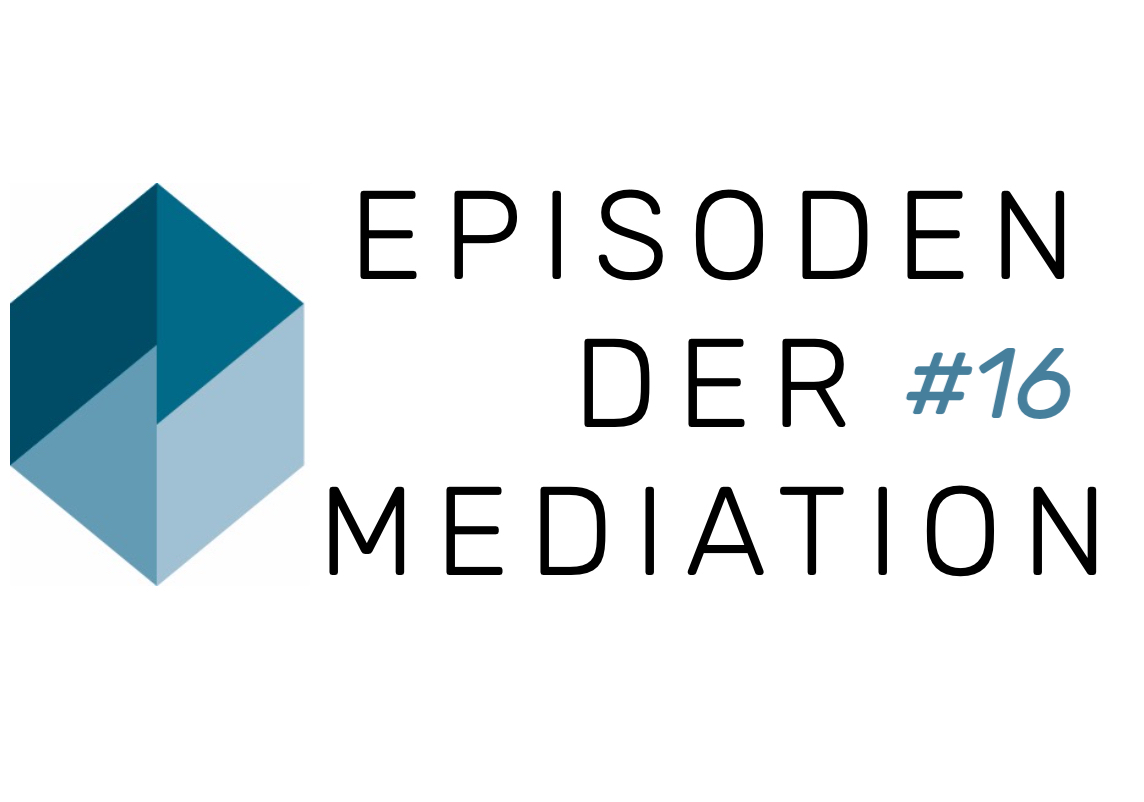INKOVEMA Podcast „Episodes of Mediation“
#16 EdM – Mediation and Marketing II – Paradoxes in Mediation Marketing
The two fundamental misconceptions of mediation marketing
Episodes of mediation. The podcast on practical questions about mediation and conflict management.
Welcome to the EdM,
the INKOVEMA podcast on the practical issues of mediation and conflict management.
I am Sascha Weigel and this is
Episode 16 – Mediation and Marketing II – Paradoxes in Mediation Marketing
When we talk about the practice of mediation, we must first and foremost talk about what precedes mediation in terms of time, namely the promotional approach of mediators and the affirmative decision in favour of mediation by the parties to the conflict. This is because once mediation has taken place and begun, the likelihood of it ending prematurely and unresolved is comparatively low. Once mediation starts, it leads to joint decisions in the vast majority of cases. Or to put it another way: The practice of mediation fails due to the poor practice of mediation.
The practice of mediation fails due to the inadequate practice of mediation.
That's why we have to talk about marketing here in this educational podcast.
Today I would like to address two important misconceptions in mediation marketing and put them up for consideration and debate.
- 1. those who apply for mediation should not do so to parties in conflict. Conflict parties are the most unfavourable addressees for a mediation approach.
- 2 Unlike the marketing of luxury cars, smartphone apps and cooking recipes, mediation marketing that talks about one's own love of and enthusiasm for mediation is misleading.
Why?
The first misconception is that conflict parties are the most unfavourable marketing addressees: Advertising mediation to conflict parties is like reciting an Easter poem at Christmas: nice, but ineffective. People who are in an escalated conflict are characterised by a narrow perspective and tend to seek confirmation of their point of view, coalition partners, rather than neutral third parties who are also interested in the other side's point of view. Conflict parties do not seek mediation. This is what distinguishes them from presentable driving licence holders looking for a luxury car, smartphone owners who need an app and hungry people who want to enjoy cooking foreplay. Conflicting parties seek reassurance, which is why complaining to friends and going to court are tried and tested problem-solving approaches. It is much more helpful to focus on the social environment of an escalated conflict in order to promote mediation. In other words, the parents and neighbours of the couple who are not divorcing, or the adult children of such estranged spouses. They have enough social influence and sufficient bonding power in the relationship to put forward the idea of mediation in such a way that it can be successfully injected. In workplace conflicts, for example, these would be the HR department, superiors and team members who could be considered for promising mediation marketing.
Of course, it is also possible to address potential conflict parties, i.e. to suggest mediative conflict management methods to people who will come into conflict at a time when the conflict has not yet escalated or even broken out. This is an excellent time to talk about anticipatory and preventative measures that may be strategically beneficial to the project and relationship objective. This is where deal mediation comes into its own!
The second misconception is that one's own enthusiasm and love should find inspired expression in mediation marketing: As already mentioned, mediation is not a product like a hyped smartphone app, a fancy luxury car or a hip cooking recipe. Mediation is more like a life insurance policy that covers your own death, the equivalent value of which you can no longer consume yourself and which is paid out at a later date than your own cash benefit. In short, life insurance policies, the reason for which is hardly a party topic, the consideration for which is abstract, intangible and benefits others, are already a difficult marketing topic. Mediation, on the other hand, is the final enemy. Here you can't even make your loved ones happy – and not even after your own demise, where you no longer have to experience the actual effects. Mediation requires the parties to a conflict to pay money to someone who emphatically does not bring a decision to the conflict, but recommends a procedure whose outcome is open, i.e. uncertain, and even if a joint solution is found, usually does not even result in an enforceable and therefore secure conflict decision. Honestly, the mediator's own love and enthusiasm cannot compensate for this and contribute to the appointment. On the contrary, they come across as untrustworthy, lacking in empathy and sometimes downright repulsive. It may be different if the mediator can and would advertise the fact that they have already conducted mediation in their own conflicts and can report that it is worth trying. But even in this case, the risk seems too great to use this approach.
Three things are needed when promoting mediation: personal credibility, professional reliability and social authority. Pay attention to these things in all your marketing tools – and the chances increase that you will be commissioned for your counselling support work by conflict parties who want and need solutions in times of need.
That’s it for this time, thanks for listening, and maybe you can pick up an idea or two for yourself and your approach. Feel free to let me know – I would love to hear about it. And also, if you are pursuing other ideas, I look forward to hearing from you.
If you would like to support this podcast, leave feedback on Apple Podcast or INKOVEMA on GoogleBusiness, which has now been integrated into GoogleMaps.





Leave A Comment